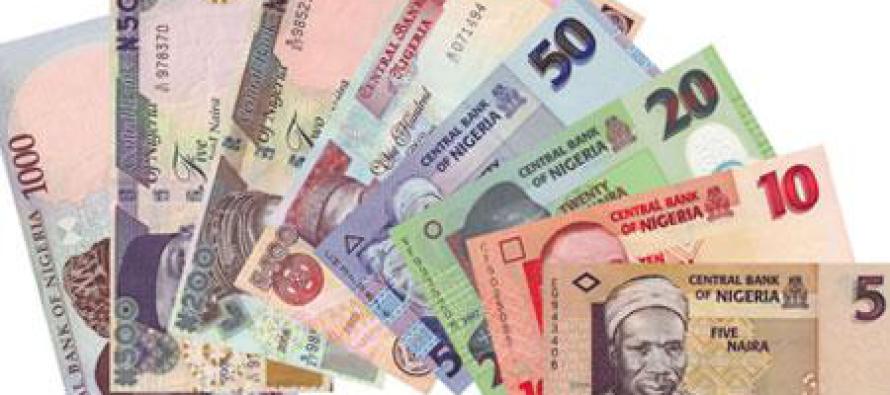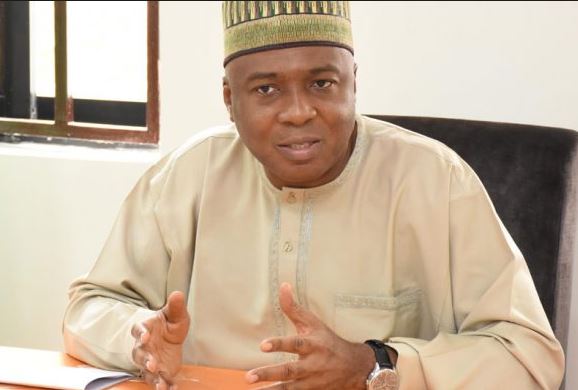By Omoh Gabriel
The federal government is currently basking in the euphoria that the economy is out of recession. To the deserving mind the issues that bedevilled the economy and plunge it into recession are still steering the nation in the face. Some of these issues are not the traditional economic factors that have been so commonly blamed for the woes of the nation’s economy.
Two of the problems confronting the nation’s economy are greed and cash hoarding which the current efforts are not addressing. Looking at economic history several studies have shown that since the great recession of the 1930s many of the wealthy in society who devastated their economies were not only greedy, but nearly 40 per cent of them were not good at their jobs—and that 10 per cents were sycophants. Some studies have also revealed that the wealthier they were, the more likely they were to be more narcissistic and more unethical.
This is very true of the so called billionaires in Nigeria, being they businessmen, politicians or civil servants. Unless those that were born into wealth which are few, many of these so called “job creators” or successful politicians are using nefarious means to accumulate their vast wealth contrary to the popular myths that they accomplished this with just hard work or a great idea.
The second psychological disorder prevalent in Nigeria today, which is related to greed, is hoarding that is damaging the economy and is on the rise in the country without much attention being paid to it. Hoarding is when a person accumulates a massive amount of valued objects for which that person has no practical use. The most damaging form of hoarding in Nigeria as of today is the hoarding of money. This is routinely done by those who can and desire to do so despite Central Bank of Nigeria cashless policy. The richest among Nigerians have far more money that they could possibly ever need, or even use, but to them it is a game in which the richest one is the winner and the rest of society are losers.
The above facts are the twine problems confronting the economy that would perpetually keep Nigerian economy under. Nigerians just gross over issues of economic importance and emotionally pushed them under the carpets. Ask the billionaires in Nigeria where they keep their excess cash, you will be surprise that it is in a vault in their homes, or buried some where. Cash kept out of the banking system in Nigeria is idle, it does not oil the wheel of economic progress. It negate the principle of financial intermediation. In the raging war against corruption in Nigeria the Federal Government has said it made cash recoveries totalling N78,325,354,631.82; $185,119,584.61; 3,508,355.46 Pounds Sterling and 11, 250 Euros from 29 May 2015 to 25 May 2016.

Recall that in a statement in Lagos, the Minister of Information and Culture, Alhaji Lai Mohammed, had said that recoveries under interim forfeiture (cash and assets) during the period totalled N126,563,481,095.43; $9,090,243,920.15; 2,484,447.55 Pounds Sterling and 303,399.17 Euros.
According to the statement, which is based on the interim report on the financial and assets recoveries made by the various government agencies from 29 May 2015 to 25 May 2016, the funds awaiting return from foreign jurisdictions totalled $321,316,726.1; 6,900,000 Pounds and 11,826.11 Euros. It showed that non-cash recoveries, Farmlands, Plots of Land, Uncompleted Buildings, Completed Buildings, Vehicles and Maritime Vessels, during the period total 239.
Nigerians are also well aware of the cash in dollars found in Ikoyi; that of Andrew Yakubu, Diezani and many others. What is clear here is that all of these monies are public funds meant to execute projects that were hoarded out of greed. If these monies and several others yet to be discovered were invested in the economy, Nigeria has no business going into recession. The question to ask is how much of idle cash is in lodged in the President office, how much is in the Vice-President office, how much is in the home of the Senate President and other legislators; how much is in the homes of governors, ministers, and other to political leaders? Just how much cash have they buried in their homes.
It is the dead you get to hear of their misdeeds. Abacha was said to have made stock the safes in Aso Rock with Naira and dollars. We have not heard how much Obasanjo, Yar’ Adua, Jonathan and now Buhari have kept in that Aso Rock vault. Does it mean all of them are saints? What has been discovered so far is only a tip in the iceberg. What about funds taken out of the country and lodged outside the shores of Nigeria? They are in safe heavens were you and I can not reach. But what about funds lodged in Swiss bank account and the thieves are dead, lost for ever. Hoarding of money has had very adverse effect on the economy. Those who stashed away Naira in their homes use the money to buy dollars for keeps. They are mostly the unpatriotic Nigerians that continued to put pressure on the Naira exchange rate. Besides, they make nonsense of CBN monetary policy. While the apex bank is spending billions to mop up excess liquidity in order to bring down inflation, these money hoarders simply continued to reflate the economy by releasing their cash holding through purchases they make regularly. Imagine that the funds being hoarded were invested in cottage industries in Nigeria or in agriculture, there would have been a multiplier effect on the economy. Economic expansion would have continued in the non oil sectors with or without oil.
The Central Bank can easily disarm these hoarders by silently changing the Naira denomination and appearance. Never before in the economic history of Nigeria have so few been so greedy and made so much at the expense of so many. You can call it greed or whatever you like, but too much is too much. Is it not time for this government instead of pursuing shadows to raise the tax rate for the rich? A tax was proposed for those who have private jets, and other luxury items but the rich as usual pocketed the federal inland revenue service and were unable to implement the tax regime. The rich in Nigeria own all the government leaders, and have stopped them from implementing policies that are not in their favour. Have you asked where are today’s super rich putting all their loots? When they are not hoarding it, a good bit of it is cascading into politics to buy favour from those in power.
Since the return to civil rule in 1999, politicians, top civil servants and wealthy businessmen have colluded to become Nigeria’s top cash hoarders, with some transferring their loots to offshore banks accounts. The question to ask is why is making and hoarding too much money become an addiction in Nigeria? The craze for money like alcoholism has induced many Nigerians to engage in obsessive-compulsive behaviour similar to gambling. Given the observable trend, if excessive wealth can cause an addictive or obsessive-compulsive behaviour, then maybe more taxation can be their only cure or at the every least, help to control their manic behaviour or obsessive impulses by reducing the dose of their drug of choice cash.
Government legitimacy is one of society’s ways of governing human behaviour, to keep some from harming others. Governments make rules and laws, such as you can not kill and you can not steal then punishments must be meted out to those who break those rules. Without self-imposed rules, humans would have chaos and anarchy. In a democracy, government is empowered to make laws based on the consensus of the majority. Some have argued that rules deprives us of our freedoms, the freedom to do as we please, no matter what the consequences are to others.
Governments collect taxes to benefit a society as a whole, and taxation has been a means of collecting revenues for centuries, although, some politicians have argued that this redistribution of wealth is somehow evil. But civilised societies have always used taxation for building and maintaining roads and bridges, infrastructure, building and maintaining an army and addressing the well-being of the populace ie hospitals, food, water. The purposes and means for collecting taxes vary, but in a democracy, the majority decides what they need, how much to collect, and how to collect tax revenues. Nigeria is not an exemption from this global norms. Nigerians must stand up for their rights. Those who are greedy and hoard money must be made to account for their actions.

